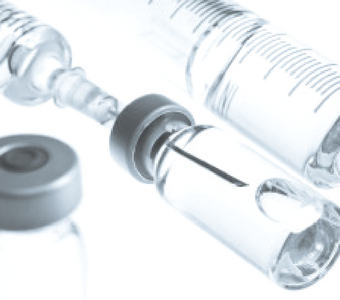After announcing Wednesday morning that it has completed enrollment of its latest Phase 3 Pimavanserin trial, dubbed the -020 study, Acadia Pharmaceuticals (NASDAQ:ACAD) gained 4% for the day, and is up 3% in early trading Thursday. Pimavanserin is an oral treatment for Parkinson’s Disease Psychosis, for which there is no FDA approved treatment available in the U.S. Psychosis is often triggered by Parkinson’s treatments themselves, which elevate dopamine levels in the brain to improve motor control but create detrimental neurological side effects like hallucinations and delirium. Pimavanserin has the opportunity to fill a large unmet medical need in the growing field of Parkinson’s treatment, over half a million people domestically and if approved for other pursued indications, as many as 5 million people according to Acadia. But the product has faced setbacks in development, as detailed in a March 2012 report from Zack’s. The drug failed an earlier Phase 3 study (-012) after a high placebo response rate did not show proof of efficacy for Pimavanserin. The company discontinued another Phase 3 trial (-014) and adjusted protocol, trial sites, and dosage before initiating trial -020 which the company believes will more accurately reflect Pimavanserin’s effectiveness. Top-line data from the -020 trial is expected by the end of November
While management guides that the company has enough cash to continue development into the middle of 2013, the company initiated an At-the-Market (ATM) Issuance agreement in March of 2012, allowing public offerings at any time in the next three years. The company has yet to execute on the deal. With one Pimavanserin trial ongoing, and another Phase 3 set to begin after top-line data from -020, R&D expenses are expected to rise. Although the company is attempting to partner Pimavanserin and does have milestone revenue from clinical products partnered with Allergan (NYSE:AGN), the ATM agreement demonstrates that Acadia is prepared to raise capital through stock offerings should the need arise. And without a partnership, the necessity of a capital raise is imminent.
Top-line -020 data in November, as guided by the company, presents a catalyst for ACAD investors, and, although nothing is certain with Pimavanserin’s poor history, analysts anticipate positive results this time around. Acadia is more than likely to raise money before the end of the year, however, as cash reserves dip lower. Pay close attention to 3Q cash to determine the likelihood of a capital raise prior to -020 data. If data from this trial and the upcoming -021 study are positive, ACAD has potential as a long-term investment with Pimavanserin as a primary revenue creator, but may be a risky trade in the short-term.



